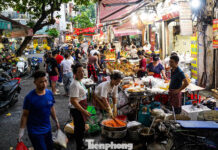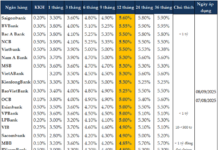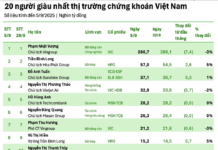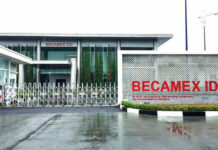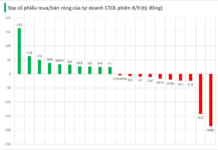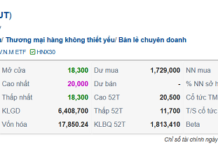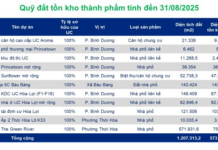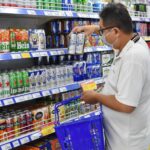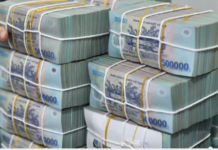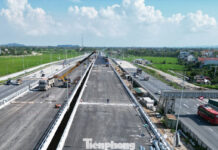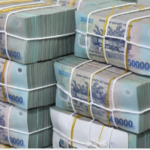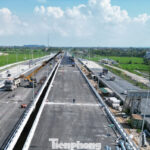Delegate Nguyen Thi Kim Thuy from Da Nang City suggested that the bill’s drafting committee consider imposing a tax on sugary drinks. In reality, many beverages contain more sugar than these drinks…
In addition, Delegate Thuy expressed concern about the potential negative impact of the proposed special consumption tax on sugary drinks, stating that it may confuse consumers into believing that only these drinks are discouraged.
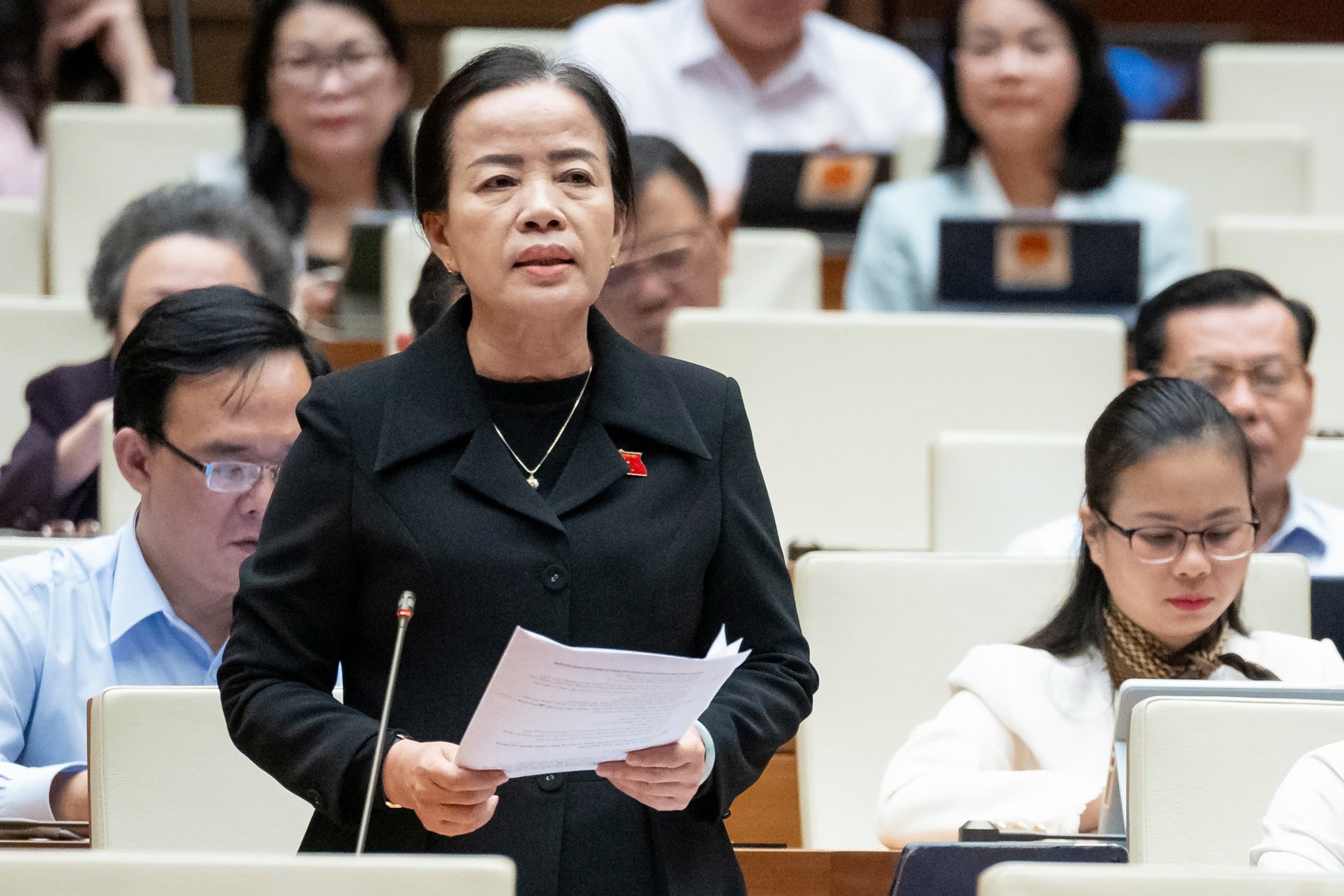
Delegate Nguyen Thi Kim Thuy – Da Nang City’s National Assembly Delegation. Photo source: quochoi.vn
In contrast, many other sugary drinks contain higher levels of sugar. Moreover, the concept of sugary drinks according to Vietnamese standards is much narrower than that of sugary beverages in general.
Sharing similar concerns, Delegate Nguyen Thi Le Thuy from Ben Tre Province suggested that the drafting agency carefully consider the application of special consumption tax on sugary drinks. She cited a report by the Ministry of Finance, which indicated that the consumption of sugary drinks in Vietnam has decreased in recent years, even without the need for taxation…
The delegate emphasized that the effectiveness of such taxation in reducing overweight and obesity rates is not guaranteed, as evidenced by countries like Brunei, India, Chile, Finland, and Belgium, which have imposed special consumption taxes on sugary drinks but continue to experience rising obesity rates.
In contrast, countries that have not imposed special consumption taxes on sugary drinks, such as Japan and Singapore, have the lowest rates of overweight and obesity.
Therefore, the delegate questioned the potential impact of the tax on reducing overweight and obesity rates and other non-communicable diseases, suggesting a comprehensive assessment of the policy’s effectiveness in protecting public health.
“It is proposed to thoroughly and comprehensively assess the effectiveness of imposing special consumption tax on sugary drinks according to Vietnamese standards to ensure that the policy achieves its goal of protecting people’s health,” said Delegate Thuy.
On November 27th, Delegate Tran Hoang Ngan from Ho Chi Minh City shared his thoughts in the National Assembly’s hallway, stating that caution is needed regarding the taxation of sugary drinks with more than 5 grams of sugar per 100ml, especially when considering the goal of protecting health and preventing weight gain and obesity.
“If sugary drinks are taxed, why aren’t other high-sugar products like cakes and chocolates taxed as well?” he questioned, suggesting that health concerns alone should not be the basis for imposing this tax on sugary drinks. Instead, he proposed considering factors such as budget balancing to make such decisions.
Considering the Timing of Special Consumption Tax on Beer
Delegate Hoang Van Cuong shared his opinions at the National Assembly, stating that the Law on Special Consumption Tax (amended) aims to regulate the behavior of consumers, discouraging the use of luxury goods or products harmful to personal health, the environment, and society.
“Therefore, when we issue the Law on Special Consumption Tax, its impact must be to change behavior; otherwise, the law will not achieve its purpose,” Mr. Cuong emphasized.
Based on this principle, Delegate Cuong pointed out some inconsistencies in the draft law, particularly regarding the proposed tax on alcoholic beverages. He noted that beer is not considered an addictive alcoholic drink by many and is instead viewed as a refreshing beverage closely linked to the dining and tourism industries.

Delegate Hoang Van Cuong – Hanoi City’s National Assembly Delegation. Photo source: quochoi.vn
As we focus on economic recovery, the dining and tourism industries need support, and increasing taxes on beer could negatively impact growth.
“A report by the Ministry of Industry and Trade’s Institute for Strategy and Policy recently published, along with a study by the Central Institute for Economic Management (CIEM), both concluded that the proposed tax increases would negatively affect economic growth. Therefore, we need to reconsider the tax increase on beer,” he said.
Instead of incremental annual increases, Delegate Cuong suggested a more significant initial increase of 10-15%, followed by another round of increases after five years. This approach would allow for more effective behavior modification, combined with enhanced communication and awareness campaigns. It would also provide businesses with time to adjust their production and explore alternative products.
Delegate Tran Hoang Ngan from Ho Chi Minh City agreed with the proposed special consumption tax rates in the draft law. However, he emphasized that reducing alcohol consumption requires more than just taxation. He highlighted the importance of administrative penalties and continued awareness campaigns, similar to those implemented in the past.
“The key lies in enforcement and awareness campaigns. The recent penalties for drinking and driving have immediately discouraged people from consuming alcohol, not solely the use of taxation as a deterrent,” he analyzed.
Mr. Ngan expressed support for a gradual tax increase on liquor but suggested caution in timing the tax on beer. He noted that the COVID-19 pandemic and administrative penalties for drinking and driving had already significantly impacted beer sales, affecting not only beer industry employees but also related distribution chains, restaurants, and retailers.
Therefore, he proposed delaying the tax on beer by one or two years, considering the industry’s current challenges. “Each employee in the beer industry contributes 1 billion VND to the state budget annually. With 57,000 employees, that’s a total contribution of 57,000 billion VND per year. During the pandemic years, this number dropped to 50,000 employees, reducing the budget contribution accordingly,” he explained.
“But it’s important to consider the vast number of people involved in the associated chains. So, my opinion is to support the tax increase on beer but with a delay,” Mr. Ngan concluded.
A Sugary Proposal: The Taxing Question of Sweet Drinks
The proposed Special Consumption Tax Law (amended) will be presented to the National Assembly for opinions at the 8th Session, taking place in November 2024. One of the novel points of this draft law is the proposed tax on sugary drinks. However, as this is the first time that a special consumption tax on sugary drinks has been proposed in such a law, it has sparked much debate and controversy.



